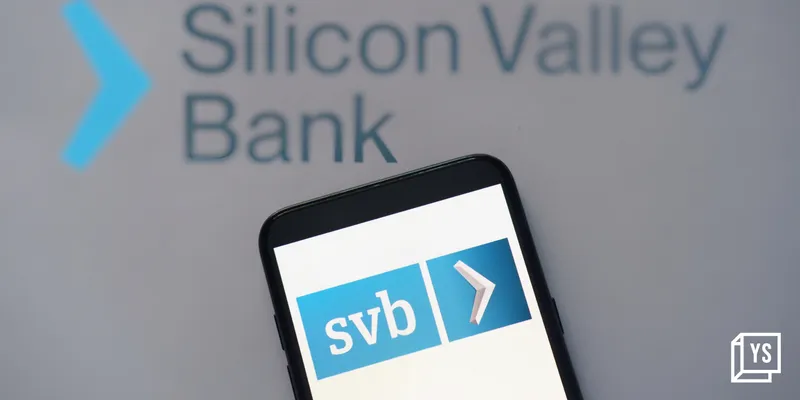Indian banks set up crack teams to help startups move funds from SVB to GIFT City
Axis Bank said companies operating in B2B ecommerce, large online car marketplaces, and agri/foodtech spaces have evinced interest in moving their funds from SVB.
Major Indian banks, including Axis Bank, Kotak Mahindra Bank, ICICI Bank, and HSBC, have reportedly set up specialised teams to help startups move their funds from collapsed Silicon Valley Bank (SVB) accounts to their branches in GIFT City, Gujarat.
The banks, which have set up their International Financial Services Center Banking Unit (IBU) in Gandhinagar-based Gujarat International Financial Tech (GIFT) City, cater to non-residents and foreign entities and allow them to open dollar accounts and deposits.
As Indian startups await to get access to their frozen deposits in the failed SVB starting Monday, March 13, Indian banks have been levelling up to offer them to park the money into their respective GIFT City branches.
“We are actively engaging with these startups to help them park their funds to GIFT City branch of Axis Bank. It also opens doors for further business engagements with these entities in future,” Ganesh Sankaran, Group Executive and Head, Wholesale Banking Coverage Group, Axis Bank told YourStory.
He said companies operating in B2B ecommerce marketplaces, large online car marketplaces, and agri/foodtech spaces have directly evinced interest in moving their funds to the bank’s GIFT City branch.
Some financial sponsors/investors have also connected to explore the proposition for their portfolio companies.
“In the background of SVB collapse, we saw an opportunity to help the startups that could have been impacted by it. As a number of Indian startups and SaaS companies would have parked the money raised for their Indian business overseas, to bring into India as and when they need it for their business purpose. These startups typically park their funds with familiar banks that they have access to,” he added.
The official said the bank actively engages with matured startups and investors through a dedicated pan-India coverage team, New Economy Group (NEG), and Financial Sponsor Group (FSG).
Other names, including Kotak Mahindra Bank, ICICI Bank, and HSBC, with similar offerings, have also set up specialised teams to assist startups, a Livemint report noted.
YourStory has also reached out to the banks for more details.
Former Infosys director and Chairman of Aarin Capital, T V Mohandas Pai, also called on banks in GIFT City to help startups transfer their funds.
“Silicon Valley Bank failure has investors calling for government aid. We need Gift city to allow our start up transfer money here,” he wrote on Twitter.

Besides traditional banks, several fintechs like neobank , revenue financing startups like , Kluband , and cross-border payments solution provider Salt.Pe had jumped in to offer solutions to startups which need help with a line of credit to manage expenses. Several VCs have also stepped in to ensure their portfolio startups keep operating in the aftermath of the shutdown.
The SVB shutdown has largely impacted Indian startups with US entities or headquarters, including multiple businesses in the software-as-a-service (SaaS) space, and those which have been a part of the startup accelerator programme, Y Combinator.
California-based Silicon Valley Bank, the 16th largest bank in the United States, was closed on Friday by the California Department of Financial Protection and Innovation, which later appointed the Federal Deposit Insurance Corporation (FDIC) as its receiver.
Even as the US government scrambles to find a buyer for the bank, SVB’s UK arm was sold to HSBC for £1, the Bank of England and the British government announced Monday morning.
As a major relief to startups, the US administration announced that depositors of the failed bank will have access to their money from March 13. "No losses associated with the resolution of the Silicon Valley Bank (SVB) will be borne by the taxpayer," said a joint statement issued by the Department of the Treasury, Federal Reserve, and FDIC.
Edited by Kanishk Singh








